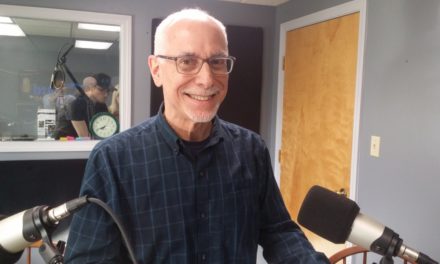(Hours 2a,b)  Rich spoke about feedback that he received after a recent Curriculum and Instruction Meeting in Manchester. He requested the assistance listeners who would like to become involved as an intern to the show and spoke about traditional methods for math education versus modern methods.
Rich spoke about feedback that he received after a recent Curriculum and Instruction Meeting in Manchester. He requested the assistance listeners who would like to become involved as an intern to the show and spoke about traditional methods for math education versus modern methods.
Click here, here and here for the mentioned articles and here (Time Stamp: 1:35:00) for the video.
[soundcloud url=”https://api.soundcloud.com/tracks/308198277″ params=”auto_play=false&hide_related=false&show_comments=true&show_user=true&show_reposts=false&visual=true” width=”100%” height=”450″ iframe=”true” /]
(Hour 2b) Arthur in Sandown called into the show to share his thoughts about the math curriculum, and he started by bringing attention to the word ‘rigor.’ Rich then discussed the push-back that President Donald Trump is receiving by high-tech industries and harmful methods that are being utilized by the schools.
[soundcloud url=”https://api.soundcloud.com/tracks/308200050″ params=”auto_play=false&hide_related=false&show_comments=true&show_user=true&show_reposts=false&visual=true” width=”100%” height=”450″ iframe=”true” /]
First, God bless you for enduring those long meetings. Are they all that long?
Second, regarding the conceptual vs. rote mathematics debate check this out: http://www.educationnews.org/k-12-schools/the-never-ending-story-procedures-vs-understanding-in-math/
The Never-Ending Story: Procedures vs. Understanding in Math
With the advent of Common Core, debate over procedures and understanding has been renewed — and we already have the right answer, writes Barry Garelick.
educationnews.org
Barry Garelick has written some great stuff regarding this.
I know many Mathematics professors who couldn’t always explain to you “why” the math works. Sometimes, it just does. That should be sufficient. If you need special professional development to teach some new “New Math” and in addition parent teacher nights to help parents learn it, then perhaps you are thinking about math education wrong.
It’s difficult to try and get certain educators to get this, especially with Math. The schools of education and the free professional development that textbook companies offer (in an attempt to sell their books) pedal this stuff. It may sound good but it does not work well in practice.
Here’s another piece by Barry. He has summarized these issues much better than I could:
http://www.educationnews.org/education-policy-and-politics/barry-garelick-the-myth-about-traditional-math-education/
Barry Garelick: The Myth About Traditional Math Education
The education establishment commits to fads like group and collaborative learning, but Garelick says they shouldn’t ignore and misinterpret traditional math.
educationnews.org
You are having a conversation with people who have been told their entire life the sky is green. You are now trying to convince them it is really blue. They will smile politely and nod but inside they think you are the crazy one.
https://traditionalmath.files.wordpress.com/2016/06/garelick-presentation-at-researched.pdf
traditionalmath.files.wordpress.com
This talk by Barry summarizes the whole thing well.
I’m working through the Singapore Math Kindergarten books right now with my eldest and so far I like what I see. I do not see any of the conceptualizing the one teacher mentions yet, but I’m only in grade K.
Are there old standards that the district can use? Or simply another State’s excellent standards? Why reinvent the wheel when it costs so much time and effort and yields such poor results? Just some thoughts! Good luck, and do not hesitate if you have any other questions.
I’ll also add, in my experience as a high school educator (taught Algebra I, Geometry, Algebra II, Pre-Calculus and Calculus to students in a school where 99 – 100 % of students went on to college) the students who knew their basic math facts (arithmetic) well and could perform these facts using the standard algorithm and did so with ease performed the best in my classes, hands down.
Some students might have been able to explain the why, but truthfully, it was not necessary to their success in my classes. Also, in all of my mathematics classes at the college level (B.A. in Mathematics) I never once had to write an essay to explain my answer to answer why of how the math work using words or pictures. I was, however, asked to do mathematical proofs to prove the math we had been doing our entire math careers (It was a pain of a class but a good one). I would never expect a elementary school student to perform college level mathematics.
Also, my calculator was about as good as a paperweight in my college math courses. We did use some computer programs for graphing three dimensional graphs but that was it. We actually had to (gasp!) do the math. Crazy, I know.


